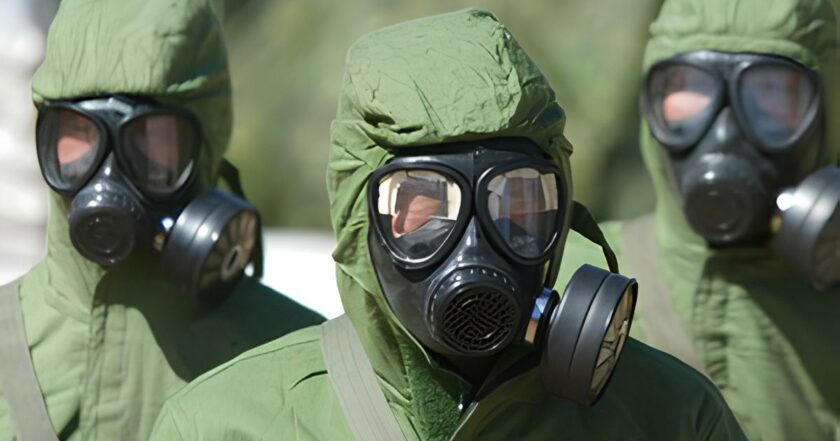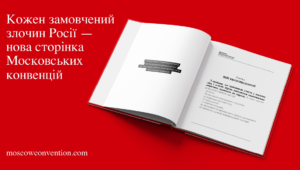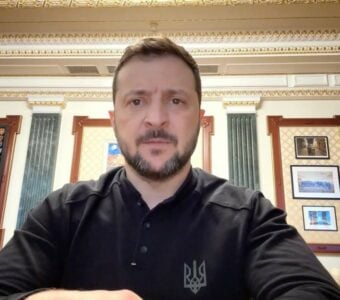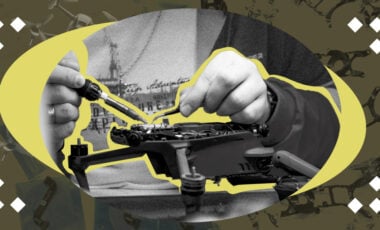Russian troops engage in systematic use of chemical weapons and execution of POWs – ISW

Photo: AP
Russian troops have recently increased the number of systematic executions of Ukrainian prisoners of war and continue to use chemical weapons, which is a gross violation of international law, including the Geneva Convention and the Convention on the Prohibition of Chemical Weapons.
The Institute for the Study of War (ISW) reports this.
According to American analysts, Russian soldiers have been carrying out more systematic executions of Ukrainian prisoners of war. The Institute for the Study of War (ISW) reported that on October 18, two Ukrainian servicemen were shot and killed by Russian troops near Selydove in the Donetsk region after their hands were tied.
Moreover, as ISW has pointed out, the Russian Federation is still employing chemical weapons against Ukrainian forces. A Russian military blogger has recently verified, on October 20, that the Russian military is using chloropicrin, a harmful substance that causes severe damage to the lungs.
On May 1, the US State Department stated that Russia was breaking the Convention on the Prohibition of Chemical Weapons by utilizing chloropicrin and other prohibited substances, such as anti–riot agents.
Ukrainian sources also previously reported that Russian troops are increasingly using grenades equipped with chloropicrin, which is another violation of international treaties and standards of humanitarian law.
"The apparent systematic perpetration of war crimes throughout the entire theater suggests that Russian forces continue to operate at a low level of discipline and that Russian field commanders are doing nothing to prevent their subordinates from engaging in such criminal behaviors, or may even be encouraging them. There is no evidence that Russia is holding Russian personnel accountable for the violations of the laws of war that have been reported," the American experts emphasized.
ISW key findings as of October 21:
- Moldova's October 20 European Union (EU) referendum passed by an extremely narrow margin in large part due to support from the Moldovan diaspora, and current Moldovan President Maia Sandu will face Alexandr Stoianoglo in a second round of voting on November 3. Several Moldovan and European officials reported potential Russian interference in the election, and the Kremlin and its affiliates in Moldova will likely continue their malign influence efforts in the leadup to the November 3 runoff.
- Kremlin officials and Russian military bloggers claimed that Moldovan authorities falsified the results of the election and referendum and continued to promote long-standing Kremlin narratives targeting Moldova's path towards European integration.
- US Secretary of Defense Llyod Austin traveled to Kyiv on October 21 and announced a new $400 million military aid package for Ukraine.
- Russia appears to be scrambling to reduce tensions with South Korea following credible reports of intensified North Korean cooperation with Russia, including South Korean and Ukrainian intelligence warnings that a contingent of North Korean troops has deployed for training to Russia.
- Russian forces continue to systematically perpetrate war crimes, including the continued executions of Ukrainian prisoners of war (POWs) and the use of chemical weapons.
- Ukrainian forces recently advanced in the western part of the Kursk region salient.
- Russian forces advanced west of Kreminna, southeast of Pokrovsk, and southeast of Kurakhove.
- Russian forces recently conducted several mechanized attacks of various echelons on the Kurakhove front.
- Russian occupation authorities continue to coerce occupied Ukrainian populations into signing contracts with the Russian Ministry of Defense (MoD).
Earlier, Rubryka reported that the Russian military in the Bakhmut area shot a serviceman of Ukraine's armed forces, who may have been wounded. According to this fact, the prosecutor's office started an investigation.
Also, the Prosecutor General of Ukraine, Andrii Kostin, stated that about 90% of Ukrainian prisoners of war were subjected to torture, rape, threats of sexual violence or other forms of ill-treatment.























































